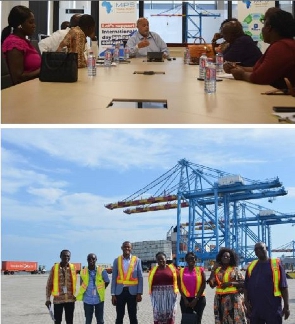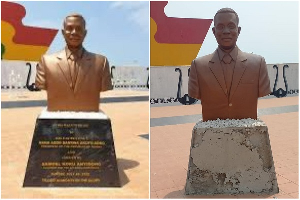Like other signatories, Ghana’s commitment to the World Trade Organization’s (WTO) Trade Facilitation Agreement (TFA) and the Africa Continental Free Trade Agreement (AfCFTA) places some responsibility on the country.
The TFA contains provisions for expediting the movement, release, and clearance of goods and sets out measures for effective cooperation between customs and other appropriate authorities on trade facilitation and customs compliance issues.
In light of this, a Regional AfCFTA trade facilitation team has visited the Port of Tema to ascertain the level of operational efficiency at the port.
At the MPS Terminal 3, the team interacted extensively with the management of MPS who explained efforts being undertaken to make the Port of Tema a trade hub in the region and beyond.
“What was interesting is for them to realize that we are not only providing capacity but, productivity, fast turnaround of vessels, and also predictability. Basically, importers and exporters can connect on a weekly basis to a specific service or several services. This is because we have divided the week into time slots which we call berthing windows and on those berthing windows, every week, at the same time, we have one shipping line service comes. So if you are shipping to the Far East with a specific service that comes on Monday, at 8 AM, every Monday, at 8 AM, you can count on it. MPS will berth that ship and your cargo will be loaded,” Mohammed Samara, the CEO of MPS revealed.
In turn, Adam Seidu, of the Trade Facilitation Division, Ministry of Trade and Industry commended processes at the port.
He said, “When you talk of trade facilitation, basically, it should be targeted towards what we call automation and digitization. All the ongoing operations here are being digitalized. The issue of trade facilitation has to do with the cost and time of doing business. So when you look at their digital operations, it tells you that the time of doing business is very important.”
Business News of Friday, 19 May 2023
Source: Eye on Port

















